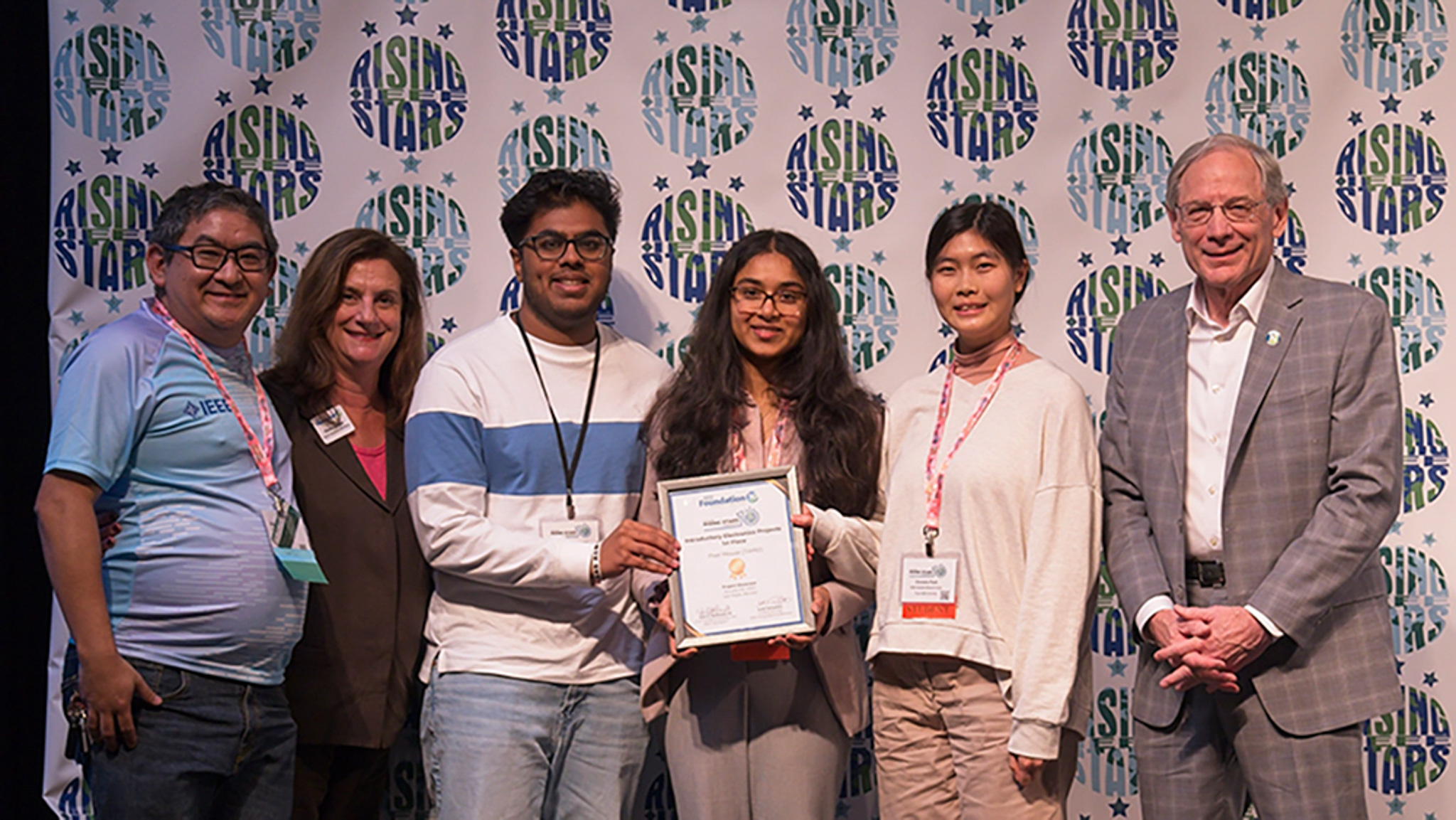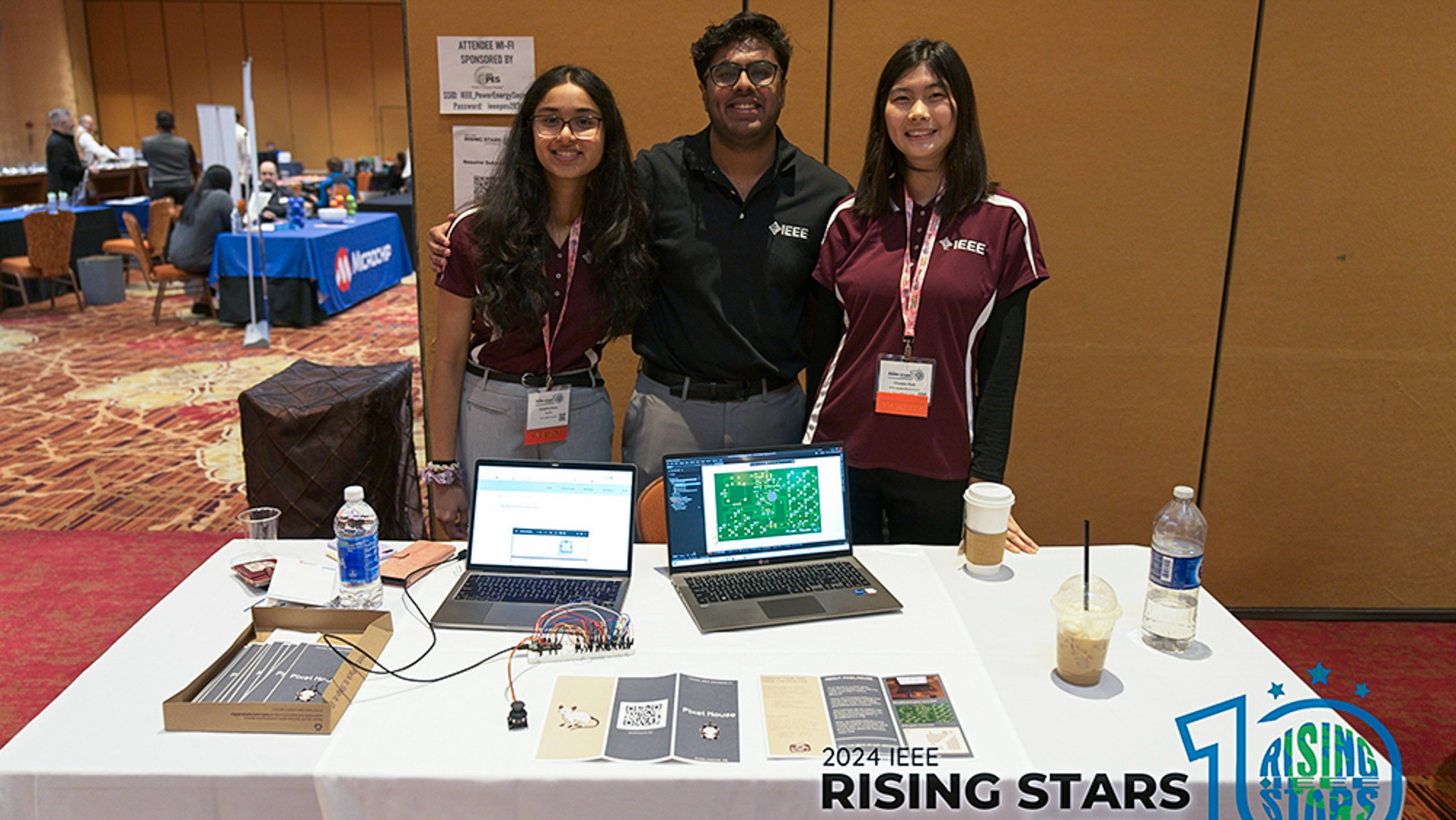
The Texas A&M University Institute of Electrical and Electronics Engineers (IEEE) Technical Education Committee (TEC) branch, led by project lead Christin Park, designed a timed maze game called Pixel Mouse to get students of all majors and classifications interested in electronics.
Together with Deeptha Karur and Karthik Ravikumar, Park represented Texas A&M at the 2024 IEEE Rising Stars Conference. The three-day event took the team members to Las Vegas, Nevada, where they attended workshops and seminars, networked with young professionals and competed with other students nationwide. The team entered Pixel Mouse as an original technical project into the newly instated project showcase division and won first place in the introductory category.
“One goal of this project was to introduce electrical engineering to Texas A&M freshmen and get them involved with electronics in a way that would be exciting for them,” said Park, an electrical engineering junior. “We also wanted to introduce PCB design using Altium Designer, an industry-level skill that is not commonly taught in classes.”
To play the game, students first form teams to create and make their own unique breadboard or printed circuit board (PCB) controllers through workshops hosted by the TEC branch. The workshops encompass information related to fundamental electrical engineering concepts such as Arduino, button/joystick implementation, soldering and PCB design.
Regardless of your major or GPA, anyone can be a part of IEEE and take advantage of these technical and professional opportunities.
Pixel Mouse is a maze game coded to work with the game controllers' button behavior. There are 11 unique hotkeys that can be implemented, including movement, jump, reset, rotation and setting spawn points. The hotkeys can be coded with Arduino, an open-source electronics platform, and the hardware can be implemented by either a breadboard or PCB. Once each team finishes making their controllers, they have a chance to compete against each other by playing Pixel Mouse using their PCB or breadboard.
The competition is scheduled to take place at the end of the spring semester, and winners will receive gift cards. While the workshops in the fall centered around breadboarding basics, the spring semester workshops are geared towards teaching PCB design and soldering. Projects such as Pixel Mouse, run by the IEEE Texas A&M Student Chapter, encourage students to explore what IEEE has to offer.
IEEE, the largest technical organization in the world, offers many networking and professional development opportunities on a global scale. At Texas A&M, the student branch hosted an IEEE Career Fair in the fall with over 30 companies and 370 students in attendance, connecting students with industry opportunities.
In addition to these big events, corporate talks, technical workshops, and social activities are spread throughout the semester meetings. IEEE Texas A&M strives to encourage a passion for learning about technology in a way that supplements the traditional engineering student educational experience.

“Regardless of your major or GPA, anyone can be a part of IEEE and take advantage of these technical and professional opportunities,” said Karur, an electrical engineering junior. “It's a really great way to meet people and build a good community. If you need professional guidance, older members are there for you.”
The team also recommends the Rising Stars Conference to other students interested in engaging in technical workshops, learning more about opportunities for growth in the industry, or networking with other students and industry specialists.
“A lot of the workshops were based on modern topics such as the chip shortage or how artificial intelligence is revolutionizing a lot of industries,” Park said. “Getting the knowledge of what is happening in the present is informative because the technological world moves really quickly, so it was helpful to be kept up to date.”
Ravikumar, a recent electrical engineering graduate, added that the presenters have been working in the industry for many years and speak from real-world industry experience. This not only means the attendees are more inclined to listen, but they also can find out what area of research they may want to pursue and network with future employers.
“Seeing the amazing projects that universities such as the University of California, Los Angeles, and the University of California, San Diego, brought to the conference was very inspiring,” Karur said. “We hope to implement some of these ideas into our future projects.”